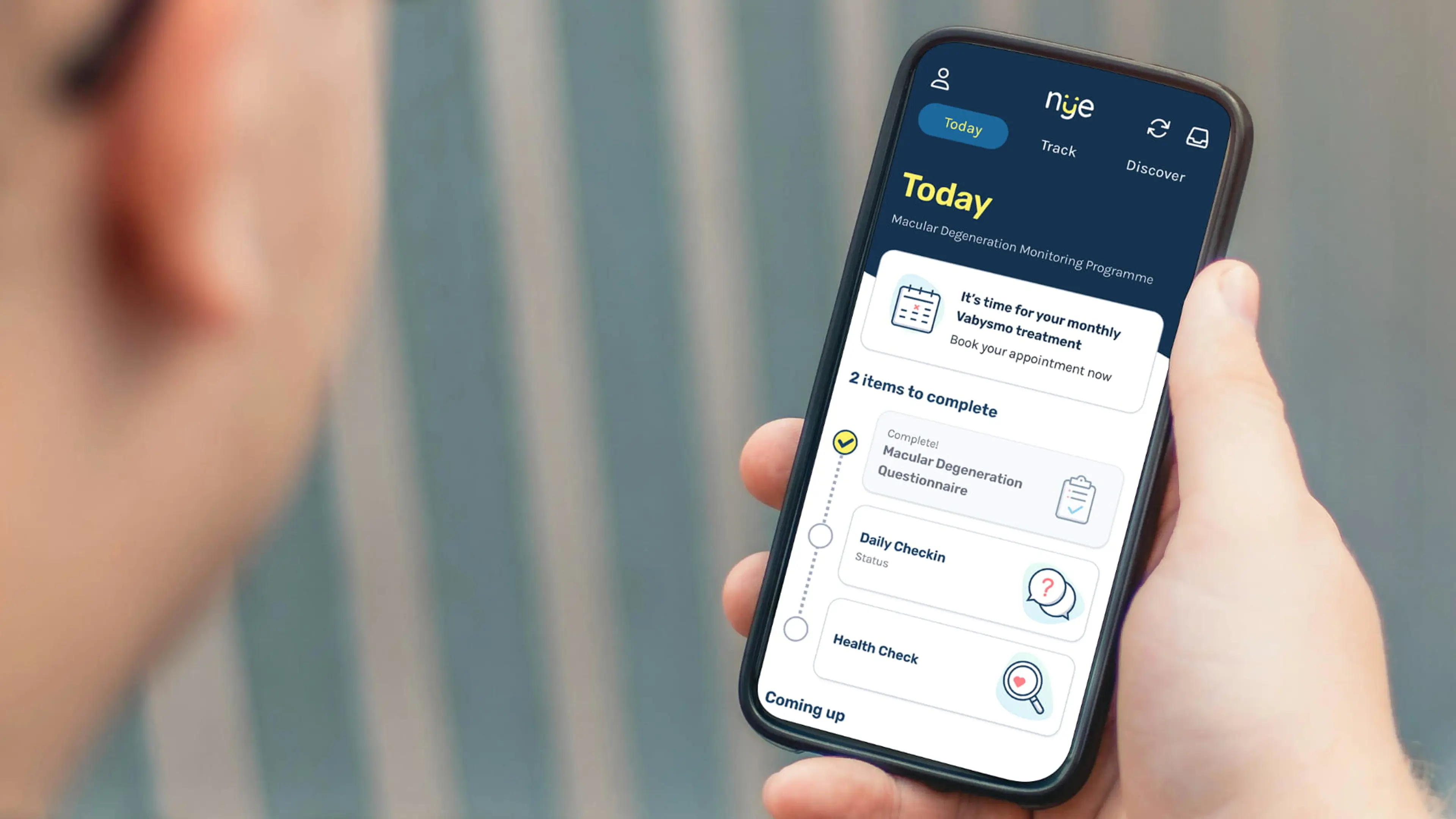
The Property Institute is a professional body for residential property managers across England, Scotland, and Wales. By spreading best practice and driving higher standards, they facilitate safer managed property communities.
They formed in 2022, from a merger of two pre-existing bodies. That meant fusing two huge membership systems into one consistent high-quality experience. To create and curate that experience, they called Fluent.
Now, over 6,000 individual members and 320 companies have access to clear, accessible, actionable information. The value of membership is even higher elevating industry standards as a direct result.
Discovery: Giving property managers a new digital presence
The Association of Residential Managing Agents (ARMA) and The Institute of Residential Property Management (IRPM) boasted over 50 years’ combined experience. When they decided to merge, each came with large amounts of resources and guidance for their respective members.
These bodies of information were certainly adjacent; both dealt with health and safety for residential properties in a post-Grenfell world. Both organisations already shared resources with their memberships.
But where IRPM’s members were individual property managers, ARMA’s were companies. This new membership organisation, The Property Institute, would welcome and provide distinct resources for both audiences.
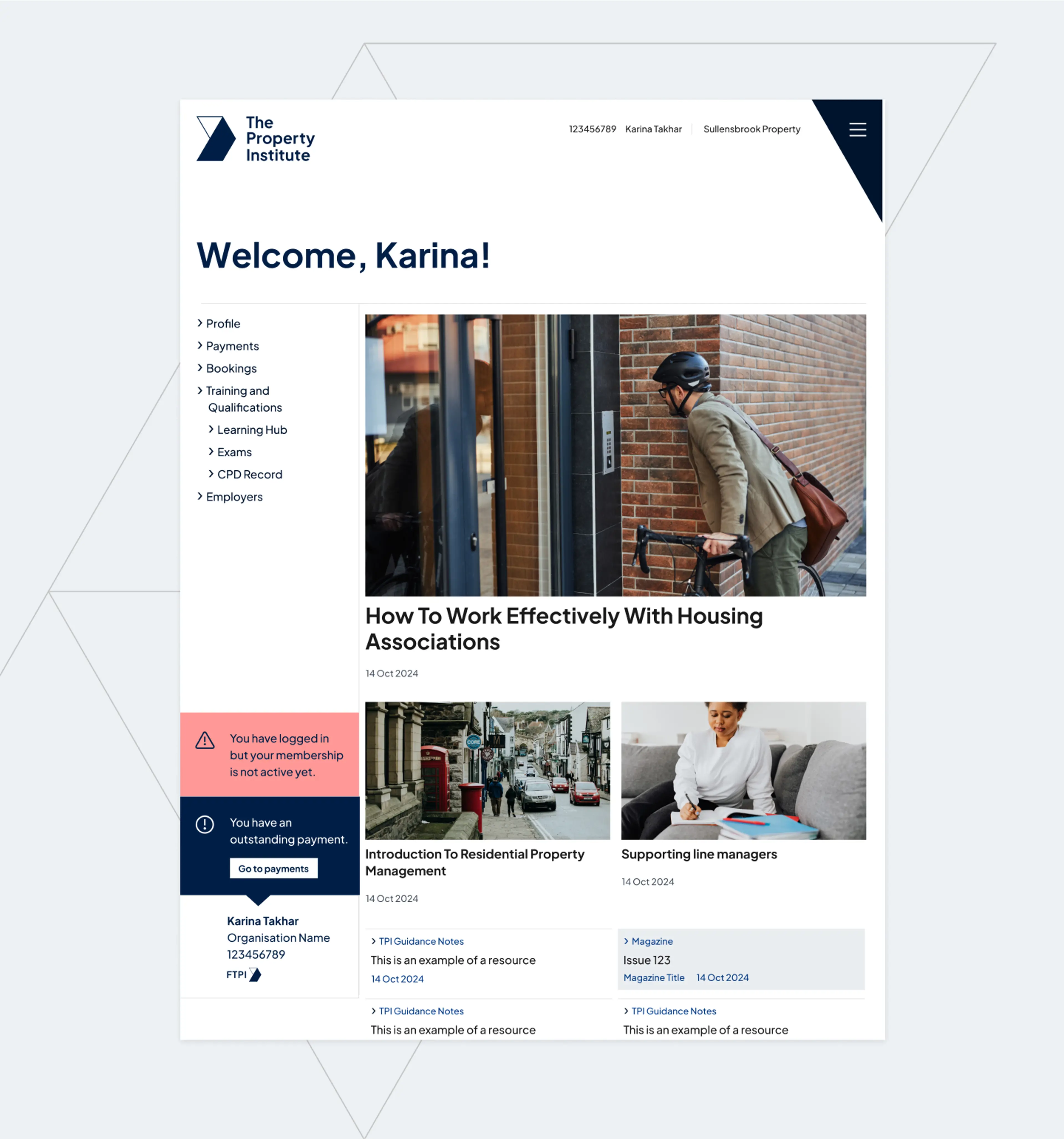

We were already working with IRPM on their own website and CRM when the merger was agreed. The Property Institute needed a website which brought ARMA’s membership system into IRPM’s CMS. This would then be adapted to fit two member groups. Making that happen in practice gave us lots to play with, including responsibilities like:
- Bringing The Property Institute’s new brand look and feel to life
- Restructuring existing IRPM content and integrating new information from ARMA
- Re-envisioning a new careers and learning section, with qualifications, courses, vacant jobs, and events elements
- Creating a new dashboard for the member’s area of the site, to incorporate ARMA features alongside expanded membership benefits
- Streamlining the user experience for both joining processes (individual and company membership)
- Extending the member search function to the new cohort of company members
- Designing core elements of the site, including specific pathways through the contact segment for niche enquiries
- Improving content management with tweaks like making PDFs and video transcripts searchable
- Extending site-wide search with added filter options
- Creating a searchable partner directory, with options for partners to manage their own data
- Personalisation options, showing and hiding data to create a more relevant experience for logged-in users
Design: Shaping heaps of content into useful experiences
We got started in October 2023, with a high-tempo month of daily stand-ups, meetings, and workshops. Each team sat in on others’ discussions in various combinations, giving everyone the information to start working fast. After establishing the information architecture, we began allocating content to the site section by section, sprint by sprint.
This content structuring process took on an organic quality. Some sections could be merged, others reworked to suit new audiences. Old and obsolete content like covid news stories could be culled entirely. Constant contact with subject matter experts meant we could keep shaping the best possible user experience.
While this was happening, we also used what we learned to develop a design system as we created the site. That then made developing future pages progressively more streamlined. It also futureproofed the site; front-end implementors could use the design system to keep the experience consistent.
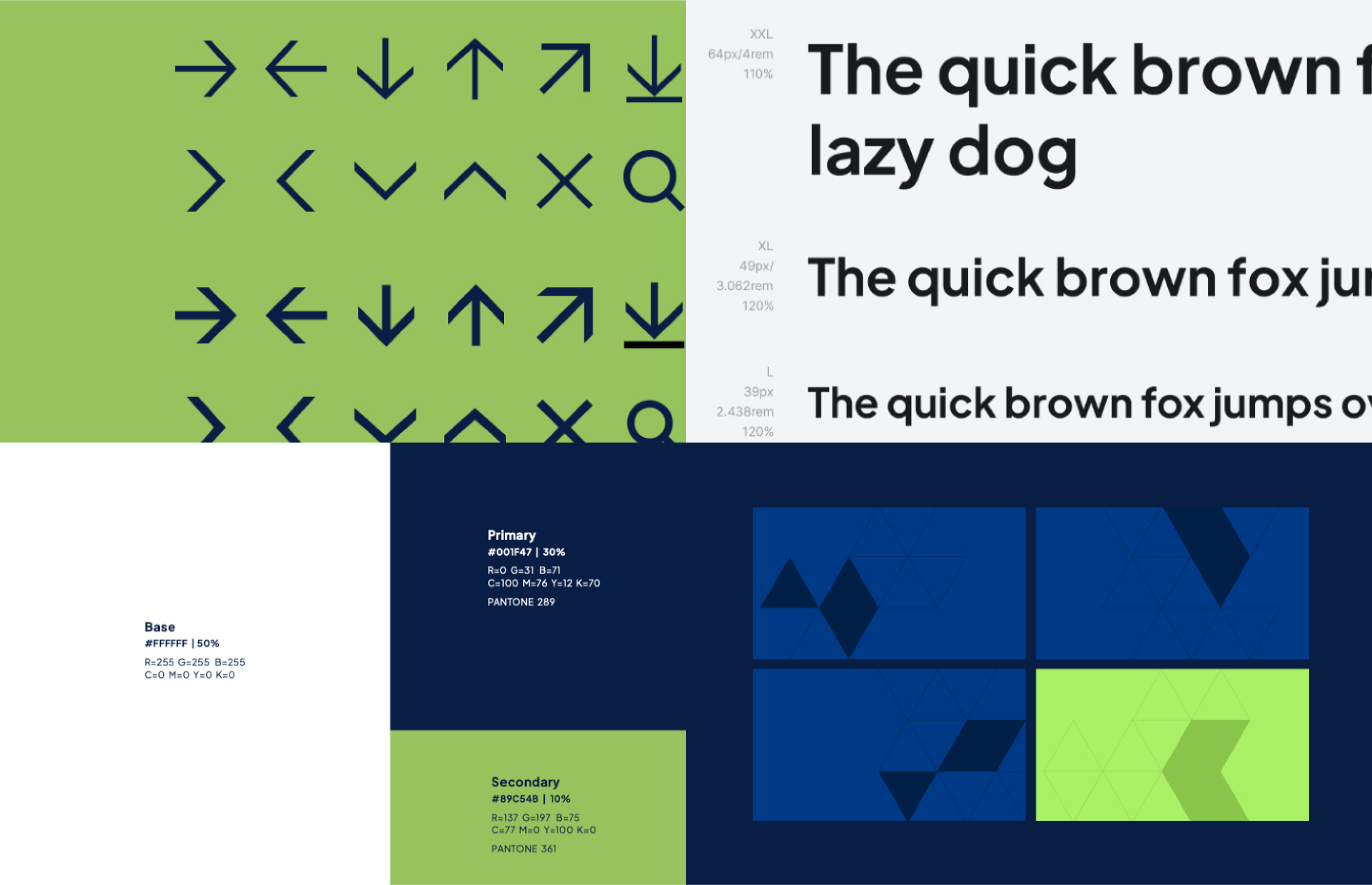
Finding key information at every stage of the journey
Creating an effective search function would be make-or-break for this project. In the end, over 1,000 pages came over from IRPM, and over 500 from ARMA. From the SEO team, we learned that lots of traffic came in from sites which weren’t the homepage.
So, we downplayed traditional navigation in favour of a search-first approach. People could enter the site via a number of central landing pages and find their way to the information they needed from there. This was a big change, aligning the site even more closely with what users needed in the moment.
Exactly how much information could be accessed without logging in also got a lot of consideration. The previous sites were like icebergs; without logging in, users couldn’t even know most of the info existed at all. Our new site showed members of the general public what was on offer, but required login to show full details. That added hugely to the perceived value of membership

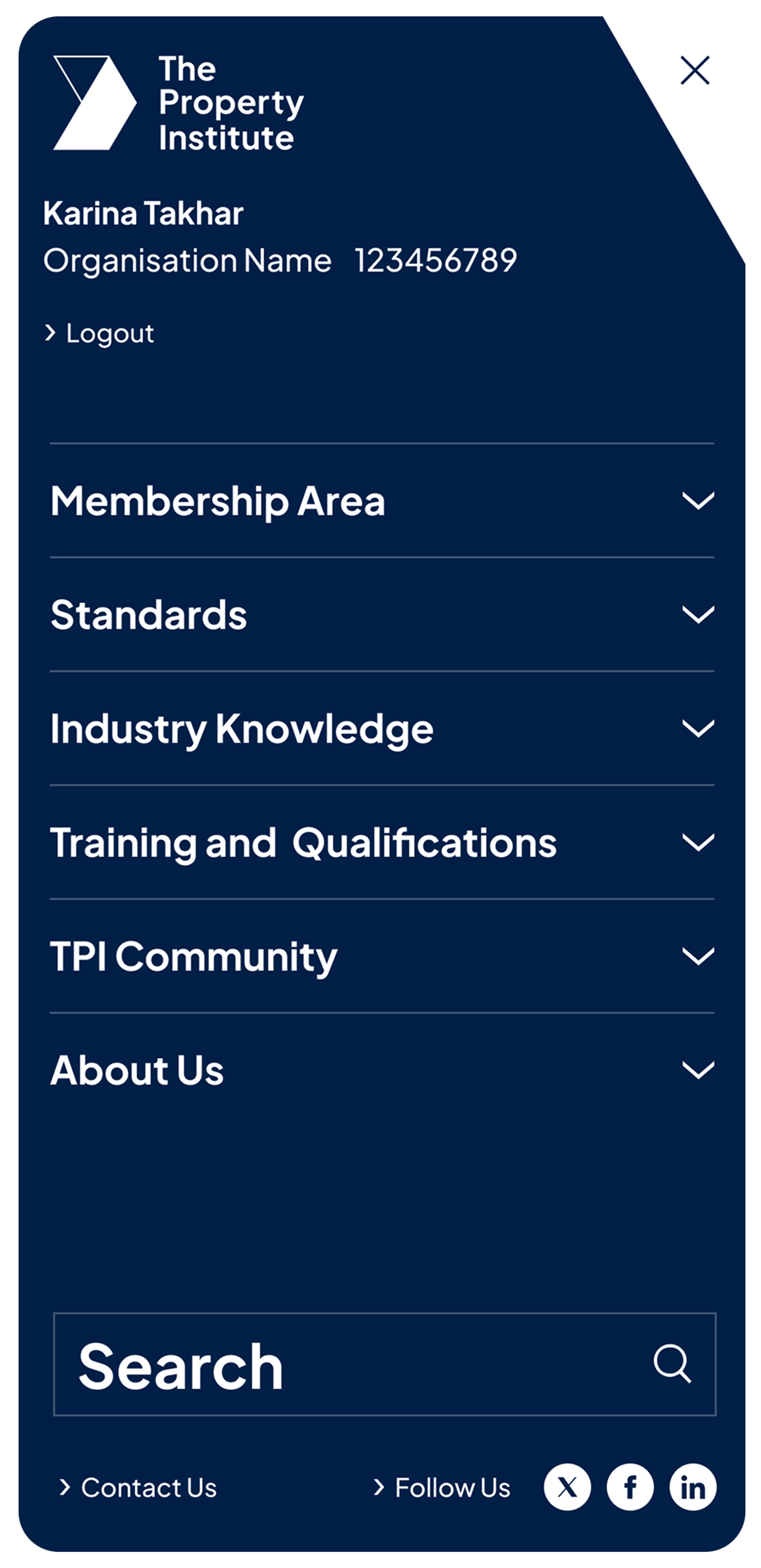
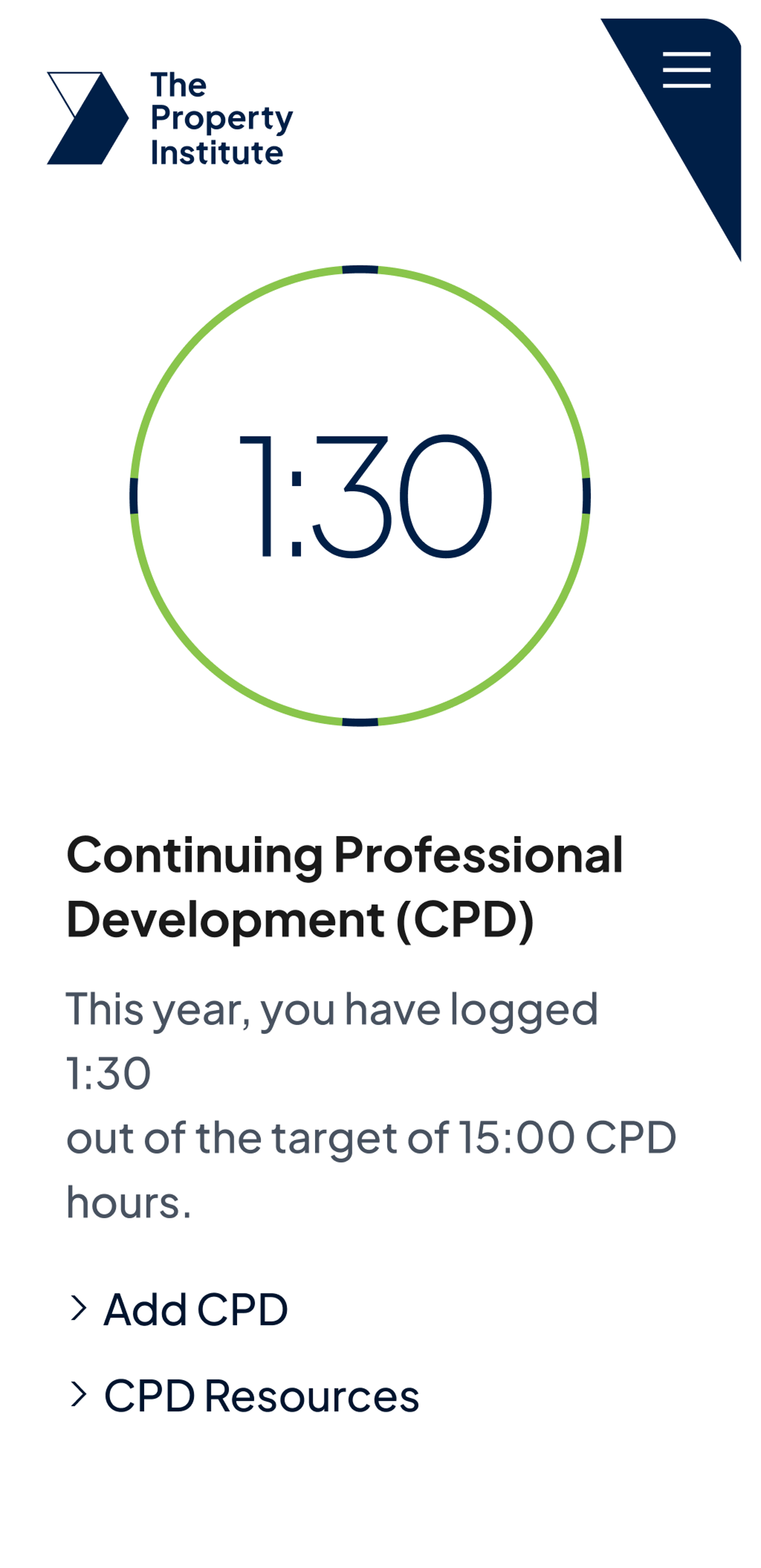
Development: Teamwork synthesises CRM and CMS
The pace and scale of collaboration didn’t slacken in the development phase. In fact, some elements of the design and development phases overlapped, with different features being worked on at different stages. Another area where close cooperation and regular communication made the difference between success and failure.
From high-fidelity Figma wireframes, the site was developed in Umbraco. We quickly got to grips with Umbraco’s new block grid feature. This wasn’t only nice for mobile responsiveness, it’s also a really nice mix of drag-and-drop functionality and more traditional techniques. Something we’ll be using lots more in the near future.
It was also impressive to see how well-immersed everyone throughout the process was in the tools chosen. Easy, transparent, valuable communication with partners let us align the new site closely with KICK ICT’s Subscribe360 as a CRM.
This was a particularly rewarding part of the project. Subscribe360 let us easily build integrations back and forth between CRM and CMS. When training courses and exams were purchased through the CRM, time and date information automatically populated calendars on the website. That’s only one example. It was a joy to implement, showcasing how nicely Subscribe360 plays with Umbraco.
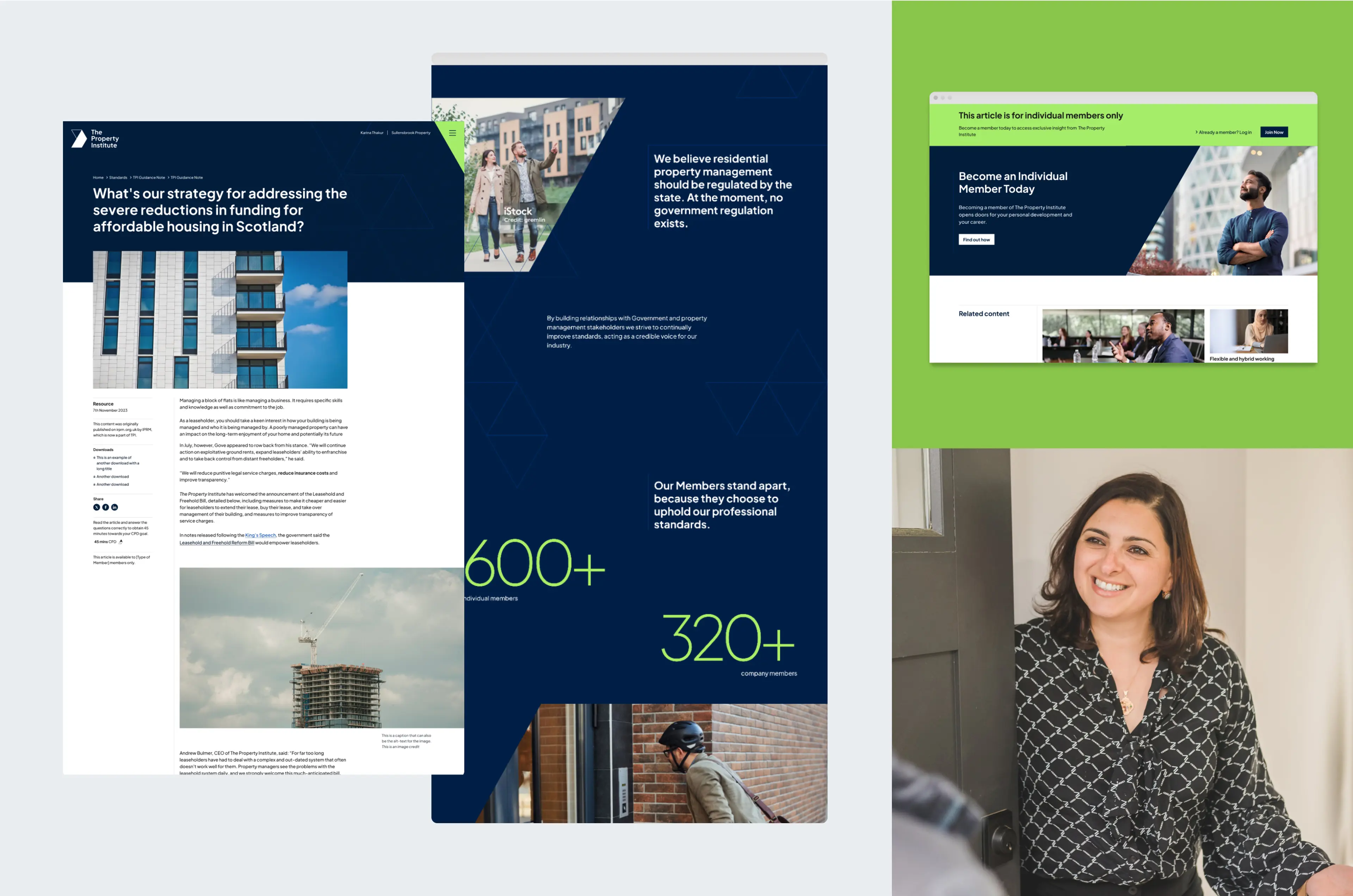
Result: A membership experience fit for industry leaders
By March 2024, The Property Institute had a site which gave members more value than either of its predecessor organisations. Personalisation is letting property managers access clear, relevant information faster. Their digital presence fully reflects their new brand identity and tone of voice.
Fluent expertise was an important part of making this happen. A broad, widely applicable body of knowledge that slots into other teams’ operations, adding value and enabling success at every stage. We’re already pitching and working elsewhere alongside people we met on this project. Lasting partnerships are creating meaningful, effective outcomes.
Could that same level of prowess and collaboration get your next big project over the line? We’re looking forward to hearing from you.
More client stories
Fluent sits within the Cambridge Agency Group, working closely with a wider network of complementary digital specialists. Take a look at more work and case studies from across the group.
More from across the group

Fluent can work the same magic on your legacy systems
Let’s talk about giving your members, customers, clients, and partners a better digital experience.

